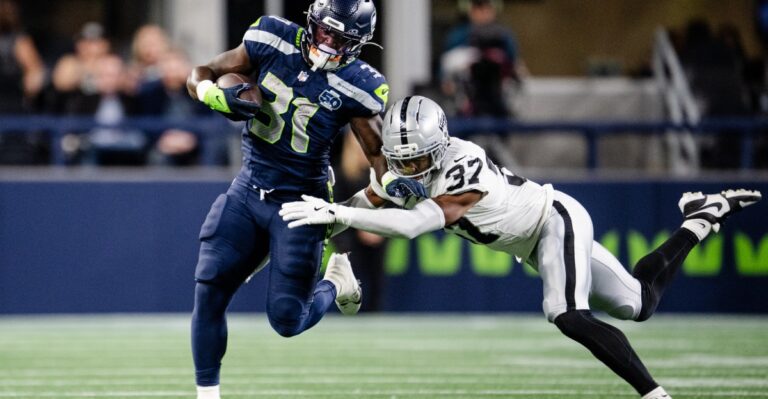
It was an accident waiting to happen. Anyone with an ounce of common sense could see the potential for the International Football Association Board’s offside protocols in the era of the video assistant referee (VAR) system to cause serious injury. Needless collisions are inexcusable. It should not have been allowed to reach the point where we are wondering whether Nottingham Forest’s Taiwo Awoniyi being placed in an induced coma will act as a red flag for the authorities.
Injuries happen. What is not acceptable is the safety of players being compromised as a result of technology warping the game and officials being instructed not to flag for offside if a goalscoring opportunity is on the cards. Thankfully, he was reported to have woken from his coma on Wednesday evening.
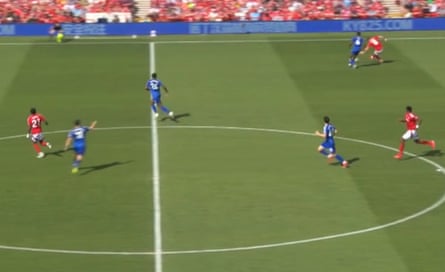
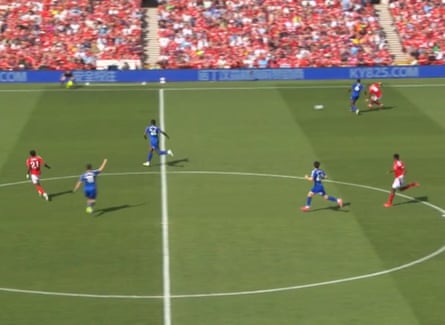
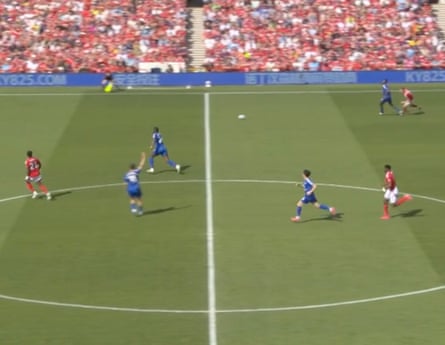
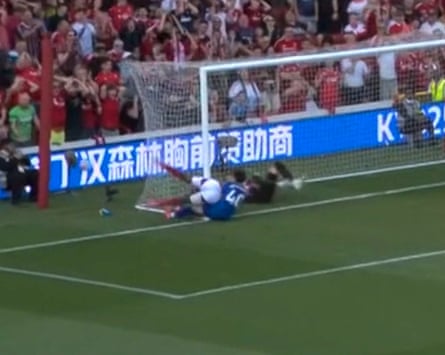
There is a feeling within the game that this application of the offside law has contributed to the rise in hamstring injuries in the Premier League. It is not ideal that defenders playing in high lines are repeatedly having to turn and set off on a series of unnecessary explosive runs. Defenders, managers and fans have every reason to complain when the flag eventually goes up.
Awoniyi is not the first to suffer. City’s Ederson and John Stones picked up injuries in similar circumstances last season. There should have been a reaction. Footballers are taught to play to the whistle. It does not matter if a defender knows that the attacker has been caught offside. There is no option but to play on if the flag stays down. There is always a chance of the offside trap malfunctioning and the goal being allowed to stand. But the uncertainty helps no one. Elanga was clearly offside. Play continued and Leicester’s Facundo Buonanotte had to track back to help out. Buonanotte was involved in the challenge that led to Awoniyi’s injury.
It is the latest example of how the desire to use VAR to turn refereeing into a precise science is causing more problems than it solves. At the 2018 World Cup, when the technology was first used at a major tournament, the protocol was for assistant referees to keep the flag down for tight offsides. That makes sense. Some offsides are impossibly difficult to call. Leaving aside whether chalking off a goal for a toenail offside is in alignment with the original spirit of the law, as long as VAR exists there is a benefit to letting some moves play out before taking a closer look at a replay.
Yet football is a game of collisions and fast movements. Its appeal lies in its imperfect lines, its shades of grey. We need to be mature enough to accept that human error is part of the game. It is time to be more flexible and allow assistant referees to raise the flag if they think they have seen a clear offside. And if that leads to teams missing out on goals that might have been? Better to have that than the constant stoppages and the increased risk of injury. Football is supposed to be fluid and chaotic. Attempting to turn it into an exact science, all clean and clinical, is out of touch. Awoniyi’s injury is a reminder of the sport’s ability to ruin even the best-laid plans.


